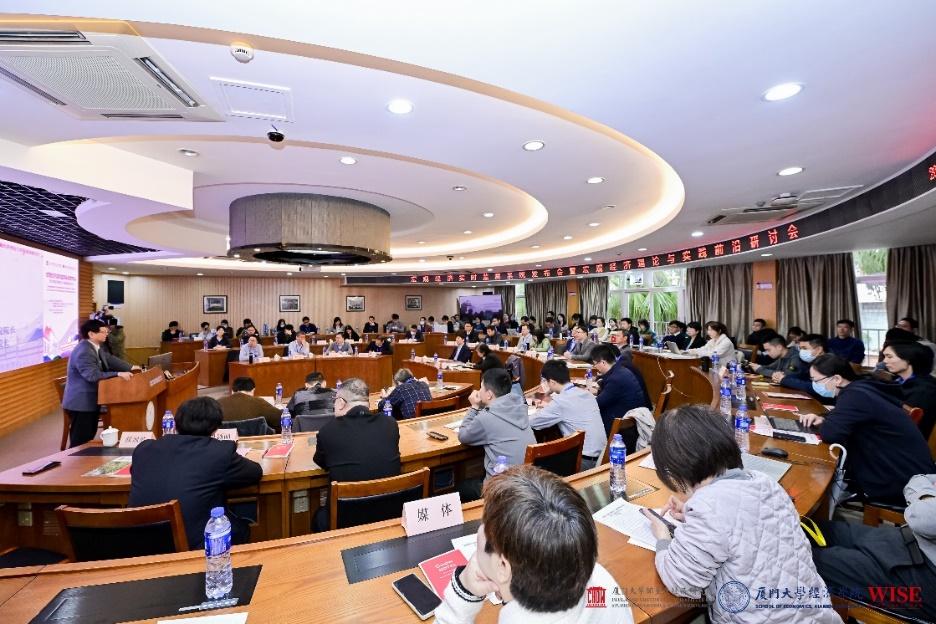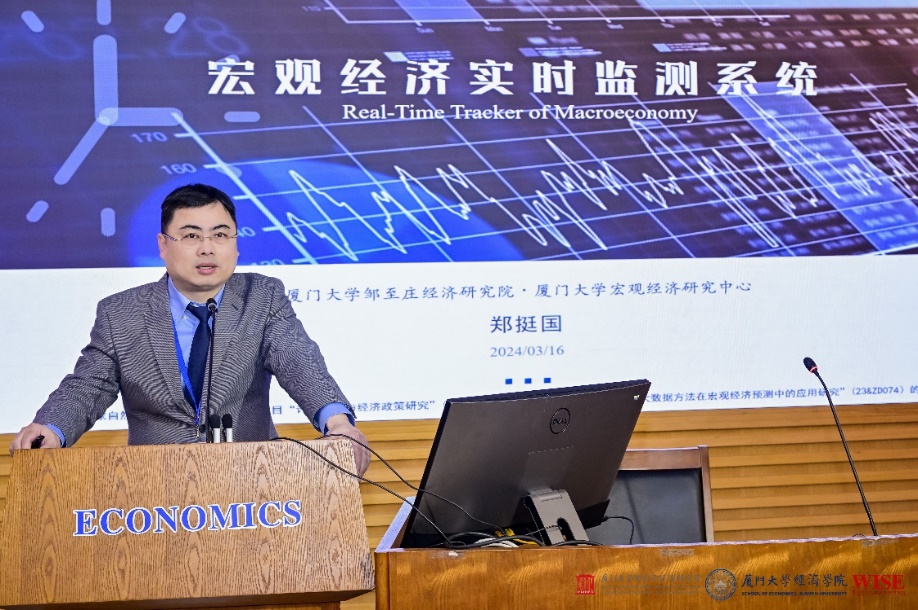On March 16, the Symposium on Macroeconomic Real-time Tracking and Advances in Macroeconomic Theory and Practice was successfully held at the College of Economics, Xiamen University. The Real-time Tracker of Macroeconomy was launched at the symposium.

According to the symposium, the real-time tracker provides daily index values of China’s Economic Conditions Index, national and regional Gross Domestic Product (GDP) and national and regional Consumer Price Index (CPI), as well as daily tracked values of their day-on-day, month-on-month, quarter-on-quarter and year-on-year growth rates (inflation rates). The tracker also publishes the macroeconomic situation of BRICS countries, including China, and Group of Seven (G7) countries, as well as the economic development trend of some Chinese provinces, municipalities and autonomous regions, and the cities and areas of Fujian Province. Currently, the tracker has been set up as the Real-time Tracker of Macroeconomy on the website of the Center for Macroeconomic Research, Xiamen University.

It is reported that the Real-time Tracker of Macroeconomy, which took more than three years to develop, has brand-new independent intellectual property rights and advocates a brand-new concept and idea of macroeconomic tracking; also, the tracker’s model is more flexible, its real-time tracking is more immediate, and its algorithms are more efficient. In contrast to traditional models which can only access data of the same frequency (low-frequency tracking), this tracker creatively constructs a macro-econometric model based on mixed-frequency big data, which can integrate data of different frequencies measured on daily, weekly, monthly or quarterly basis to produce real-time tracking results. This effectively solves the problem of time-varying parameters under the influence of economic policies, economic cycles and significant unforeseen events.
